ICER Case Study: Migraine
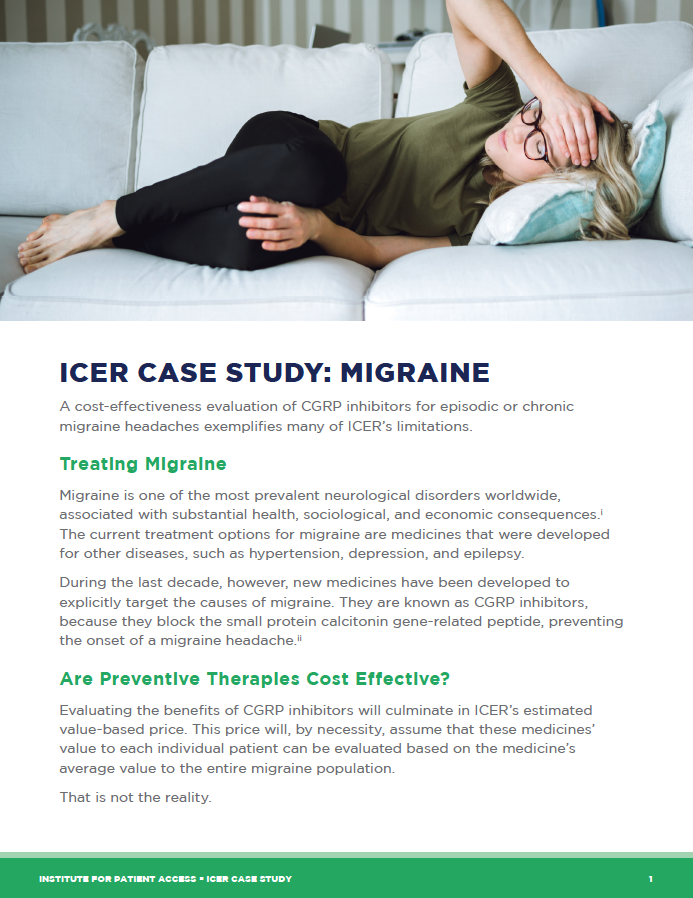
Migraine is one of the most prevalent neurological disorders worldwide, associated with substantial health, sociological, and economic consequences. The current treatment options for migraine are medicines that were developed for other diseases, such as hypertension, depression, and epilepsy. During the last decade, however, new medicines have been developed to explicitly target the causes of migraine. […]
Medicare Physician Quality Reporting Initiative Fact Sheet
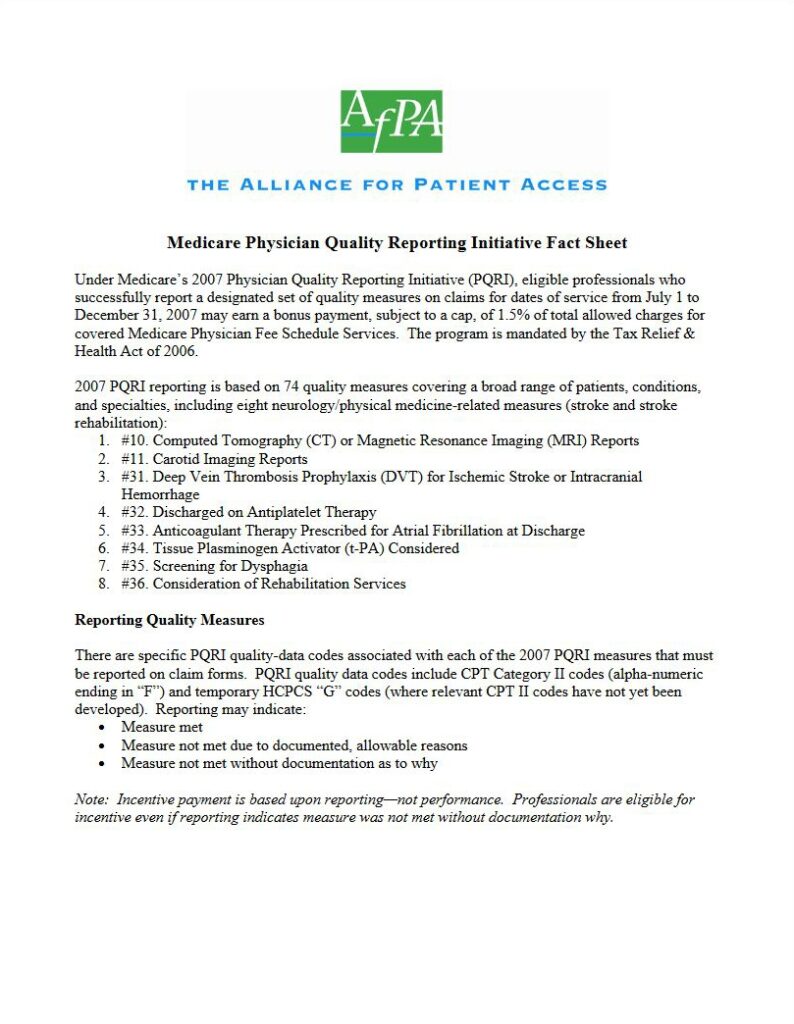
Under Medicare’s 2007 Physician Quality Reporting Initiative (PQRI), eligible professionals who successfully report a designated set of quality measures on claims for dates of service from July 1 to December 31, 2007 may earn a bonus payment, subject to a cap, of 1.5% of total allowed charges for covered Medicare Physician Fee Schedule Services. The […]
Comments on Draft Scoping Document for CGRP Inhibitors for Migraine Prevention
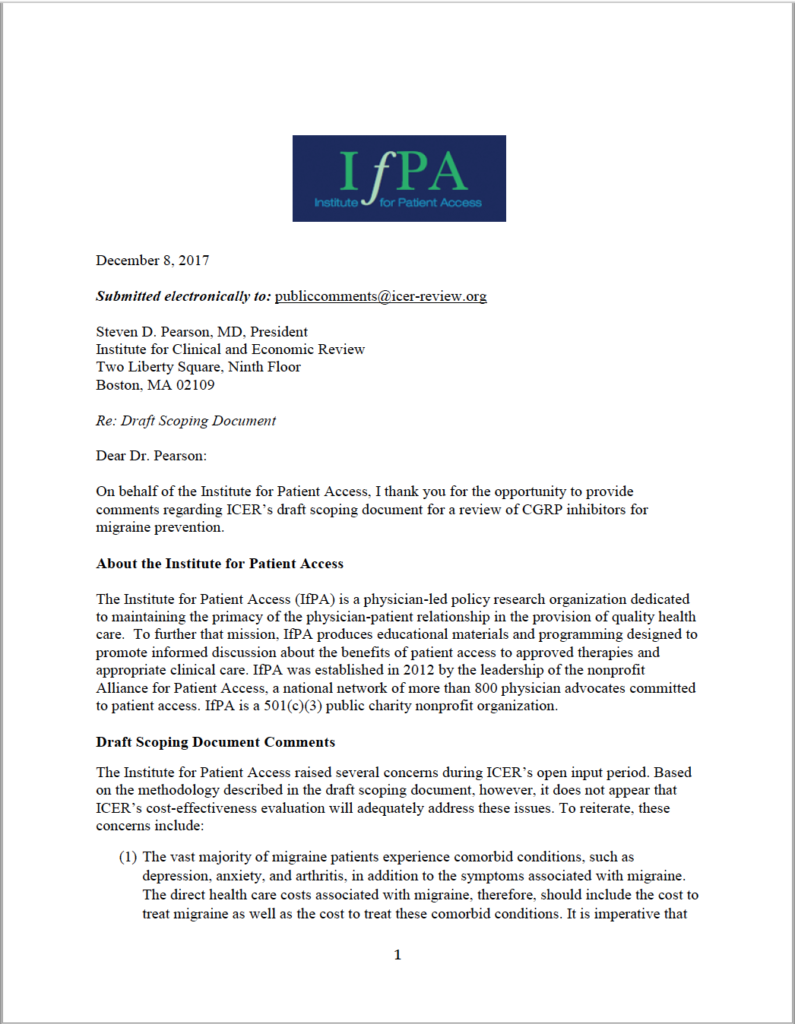
The Institute for Patient Access raised several concerns during ICER’s open input period. Based on the methodology described in the draft scoping document, however, it does not appear that ICER’s cost-effectiveness evaluation will adequately address these issues.
Input on ICER’s Upcoming Analysis of Erenumab as a Treatment for Migraine
IfPA has concerns that ICER is undertaking the cost effectiveness evaluation of Erenumab before sufficient data exists. However, should the evaluation proceed nonetheless, it is imperative that the evaluation incorporate effective estimates for all of the potential benefits associated with more effective treatment of migraine, which include: reduced health care costs associated with treating migraine […]
What ICER’s Analysis of Tardive Dyskinesia Treatments Doesn’t Explain
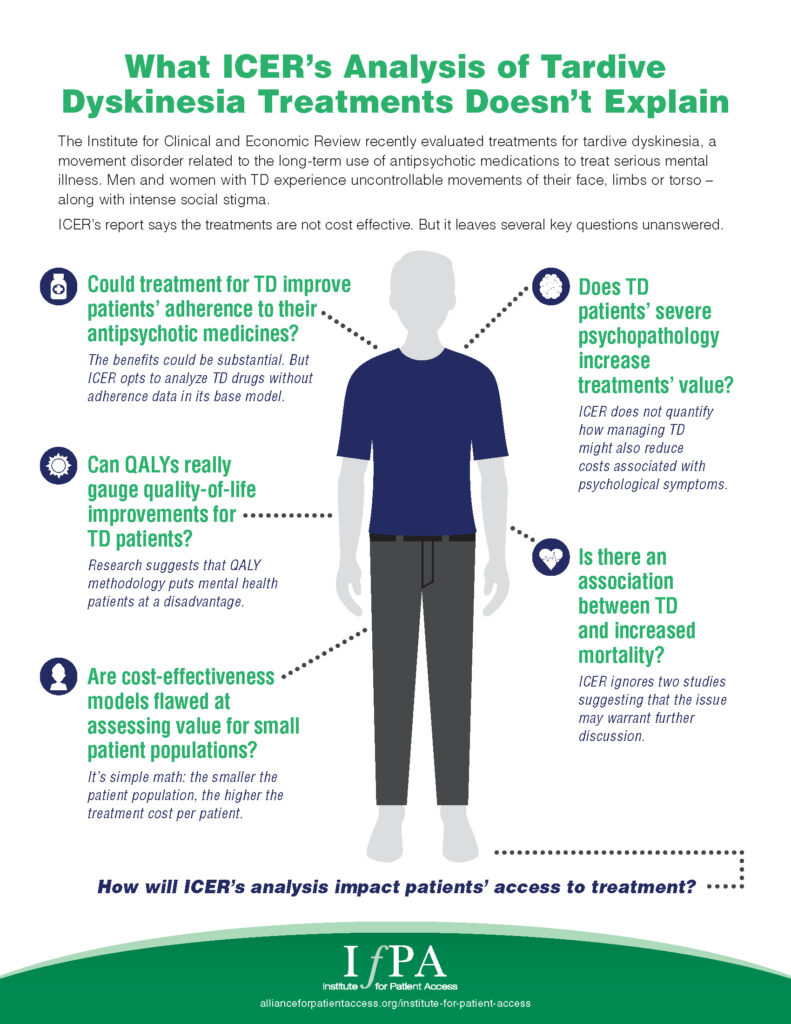
The Institute for Clinical and Economic Review recently evaluated treatments for tardive dyskinesia, a movement disorder related to the long-term use of antipsychotic medications to treat serious mental illness. Men and women with TD experience uncontrollable movements of their face, limbs or torso – along with intense social stigma.
ICER’s report says the treatments are not cost effective. But it leaves several key questions unanswered.
Feedback on ICER’s Vesicular Monoamine Transporter 2 Inhibitors for Tardive Dyskinesia: Effectiveness and Value report

IfPA is concerned that ICER’s draft evidence report, dated October 2, 2017, undervalues the benefits that tardive dyskinesia (TD) patients can receive from VMAT2 inhibitors. This undervaluation arises because of the reasons described below. 1. The base model does not incorporate the benefit of TD patients’ improved adherence to their antipsychotic medicines. 2. The cost-effectiveness […]
Cost-Motivated Treatment Changes in Commercial Claims: Implications for Non-Medical Switching
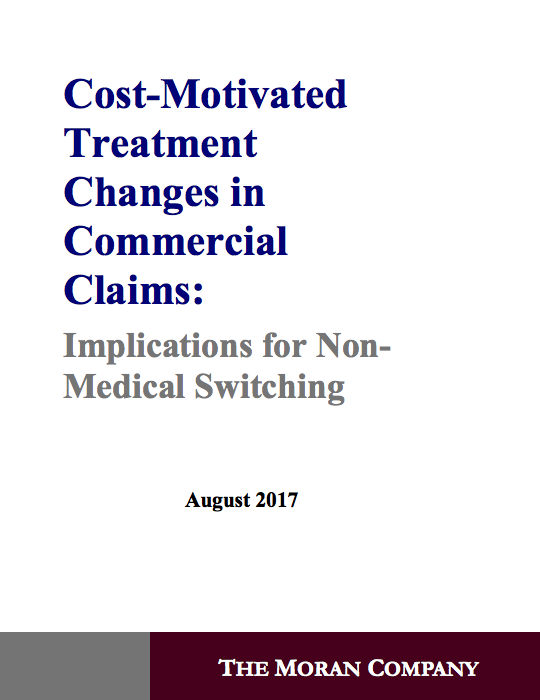
Health benefits designs in both private and public health insurance programs include mechanisms to control the costs of care, resulting in many health care choices being made with a focus on financial concerns that could outweigh clinical factors. This can particularly be true for interventions involving prescription drugs and biologics. In some cases, choice of […]
Cost-Motivated Treatment Changes & Non-Medical Switching: Commercial Health Plans Analysis

Non-medical switching occurs when health plans drive stable patients to switch from their current medication to a less expensive alternative. It can occur several different ways: by changing the list of approved drugs, by incentivizing pharmacists or physicians to switch a patient’s medication, or by limiting or eliminating the use of co-pay coupons that patients […]
What’s Missing from ICER’s Assessment of Abuse-Deterrent Opioids
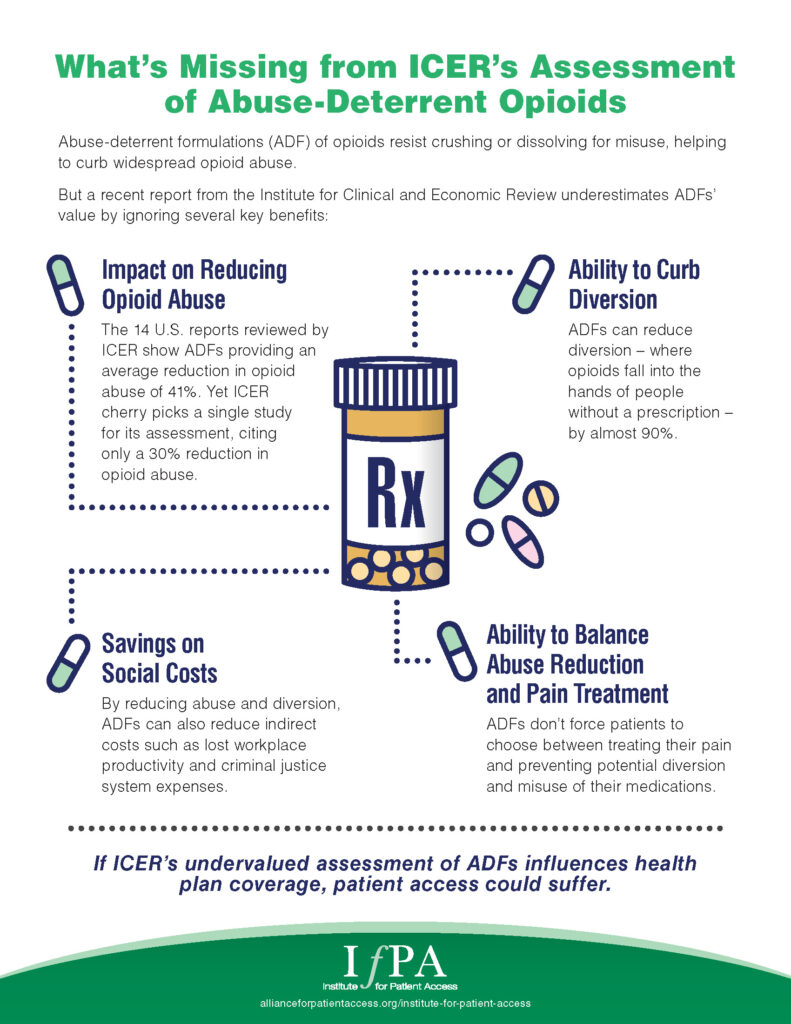
Abuse-deterrent formulations (ADF) of opioids resist crushing or dissolving for misuse, helping to curb widespread opioid abuse.
But a recent report from the Institute for Clinical and Economic Review underestimates ADFs’ value by ignoring several key benefits.
Feedback on ICER’s Abuse Deterrent Formulations of Opioids: Effectiveness and Value report
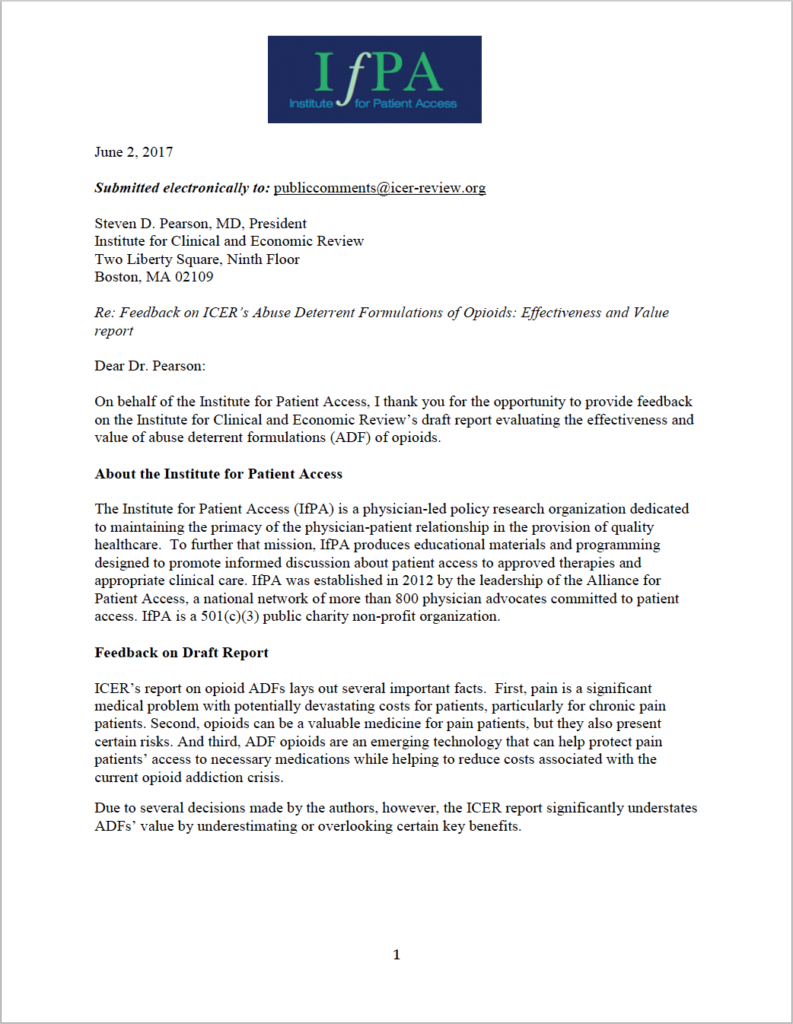
ICER’s report on opioid ADFs lays out several important facts. First, pain is a significant medical problem with potentially devastating costs for patients, particularly for chronic pain patients. Second, opioids can be a valuable medicine for pain patients, but they also present certain risks. And third, ADF opioids are an emerging technology that can help […]

